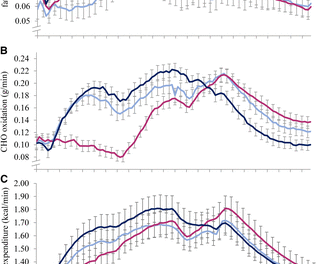An unprecedented outbreak of mpox in the Democratic Republic of Congo (DRC) has, as feared, spread beyond its borders. Sequencing of the mpox viruses in three cases reported earlier this week in Uganda and Kenya has confirmed that all belong to a deadlier variant previously seen only in the DRC.
“We warned everyone about it,” says Placide Mbala, an epidemiologist at the National Institute of Biomedical Research in Kinshasa. “People are very mobile at the eastern part of the country with great connections to neighboring countries. It was just a matter of time before we started seeing cases in those neighboring countries.”
The World Health Organization (WHO) is appealing for more help following this troubling development, which it fears could be a precursor to a new mpox epidemic, just two years after a milder strain spread worldwide. “A further scaling up of the mpox response underway in affected countries is urgently needed amid the expanding outbreak,” said WHO Director-General Tedros Adhanom Ghebreyesus in a statement. Tedros noted that WHO is working with local health officials, the Africa Centres for Disease Control and Prevention (CDC), and international partners to slow transmission. “But much more funding for a comprehensive response, including for diagnostics, therapeutics, and vaccines, is urgently needed,” he said. “I am considering convening an International Health Regulations Emergency Committee to advise me on whether the outbreak of mpox should be declared a public health emergency of international concern (PHEIC),” added Tedros. A PHEIC is the WHO’s highest level of alarm.
The DRC has experienced outbreaks of mpox for decades. This infectious disease causes painful skin lesions but can also be lethal, especially in people with weakened immune systems. In the past, most cases occurred in children in remote villages, who caught the disease primarily from rodents. However, this year has seen nearly 14,000 cases and 450 deaths reported in the country, with sexual transmission in adults becoming a major driver for the first time. The virus has also spread to urban areas and has reached Goma, a city of more than 2 million people in DRC’s North Kivu province, which borders Rwanda. Infection levels are especially high among female commercial sex workers and their male clients.
The mpox virus found in DRC, known as clade 1, has in the last year killed about 3% of those infected. The milder variety of mpox, clade 2, erupted from Nigeria in May 2022, infecting nearly 100,000 people in 116 countries to date and spreading mainly among men who have sex with men (MSM). Only 208 deaths have been reported, a case fatality rate of 0.2%. A rollout of mpox vaccines and aggressive disease surveillance in MSM communities has helped slow that spread.
Sequences of the virus isolated from the recent mpox patients in Uganda and Kenya, which researchers posted in the GISAID database over the past two days, show that they are linked to a clade 1 virus that first began circulating in DRC’s South Kivu province, says evolutionary biologist Andrew Rambaut of the University of Edinburgh. Rambaut, who co-authored a paper with Mbala in the June 13 Nature about the South Kivu outbreak, says continued spread in the DRC’s eastern reaches “is sustained human-to-human transmission and thus will be likely to reach other regions and neighboring countries if transmission continues.”
Mpox cases have also recently been reported in two other countries bordering South Kivu, Rwanda and Burundi. Neither had ever reported a case of mpox, whether clade 1 or 2. The two cases in Rwanda both had recently traveled to DRC. Burundi has reported eight confirmed cases, but no information about links to DRC was available as of today.
Africa CDC yesterday announced that it had made an emergency approval of $10.4 million to help affected countries on the continent strengthen their mpox surveillance and improve access to vaccines. It says there have been 37,583 cases of mpox and 1,451 deaths in 15 African countries between January 2022 and the end of last month.
The DRC recently approved two mpox vaccines and has 50,000 doses donated by the United States, but they have yet to be used. There’s some evidence mpox vaccines may work after people have become infected. To further explore this possibility, the nonprofit Coalition for Epidemic Preparedness Innovations announced on July 27 that it was teaming up with the Canadian Institutes of Health Research to invest $4.9 million in a clinical trial that will test the idea in DRC and other African countries.
It’s not clear how soon the WHO might convene health experts to decide whether to declare a PHEIC, but Tedros does not want to delay action. “This virus can and must be contained with intensified public health measures including surveillance, community engagement, treatment, and targeted deployment of vaccines for those at higher risk of infection,” he stressed in his statement.











